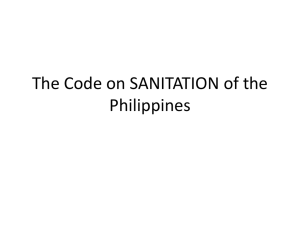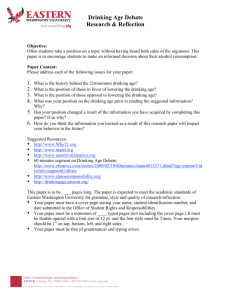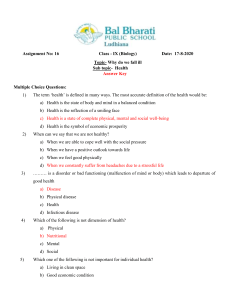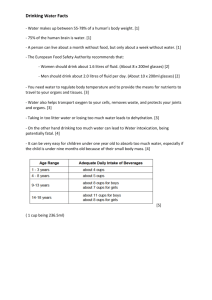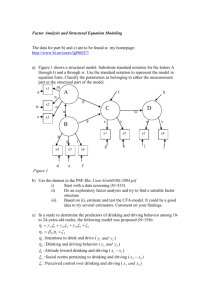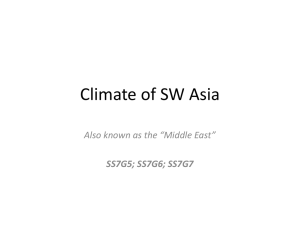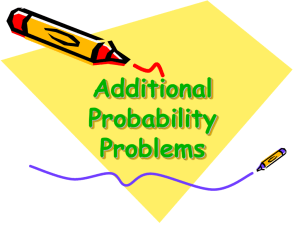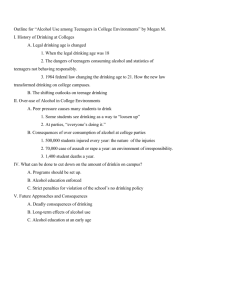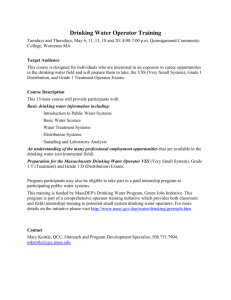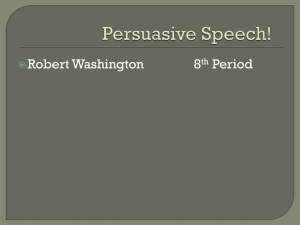Unequal Distribution of Water in Sub Sahara Africa 2
advertisement
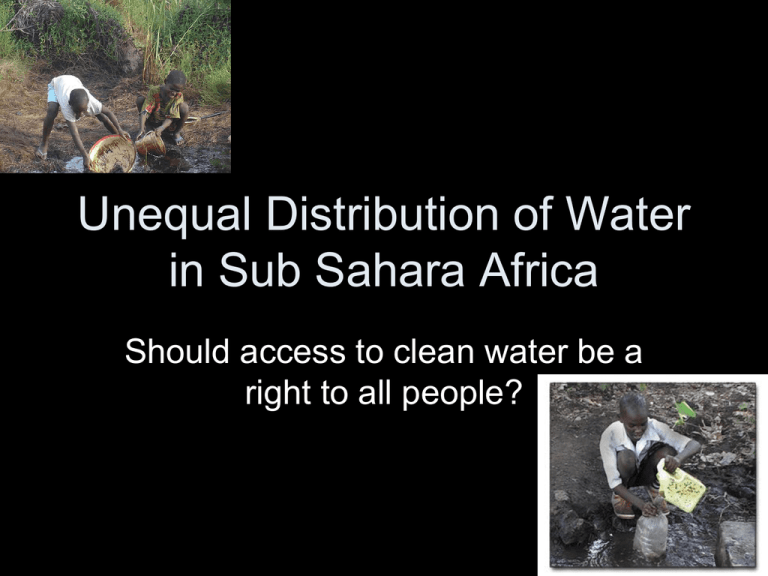
Unequal Distribution of Water in Sub Sahara Africa Should access to clean water be a right to all people? Water is Life Facts • More than a billion people lack access to safe drinking water • More than 2.5 billion lack access to improved sanitation • Each year polluted water contributes to the deaths of an estimated 15 million children under the age of five • By 2020, more than 135 million people could die of water related diseases, which is more than those who will die as a result of HIV-AIDS • What do these facts mean to you? Africa water facts • Only 47% of sub-Saharan Africans have access to safe drinking water • Industry is not the primary cause of water pollution in Africa – Natural causes such as snails, worms, insect larvae, and other parasites are the main cause • These organisms cause waterborne diseases that reduce life expectancy, lessen the quality of life, and slow economic development Water Pollution and Poverty • Water pollution and absence of sanitation…. a major reason is the poverty level in many countries in Africa – Meaning the economy in these countries is usually very low • In addition to the economy, health issues are a major concern – On average 225 out of 1,000 children under the age of five die every year as a result of unclean drinking water • Why do you think they do not have clean drinking water? Unequal Distribution of water • The main conflicts in Africa during the next 25 years could be over water • Potential “water wars” are likely in areas where rivers and lakes are shared by more than one country • Rivers such as the Nile and Niger are possible sites for conflict Potential Water War • The Niger River is close to Lake Chad • 20 million people in six countries in west and central Africa rely on Lake Chad for water. The lake has shrunk by 95% in the last 38 years • These areas are listed as having water scarcity or water stress • Water scarcity is defined as less than 1,000 cubic meters of water available per person per year • Water stress means less than 1,500 cubic meters of water available per person per year Is there anything that can be done? • South Africa is the only country that has included in its constitution the right that every person has access to 25 liters of water per day as part of their human rights • They have also installed street taps in strategic locations allowing millions of people a way to get fresh water • What about other countries? Water Bill for the Poor Act • In 2005, the President of the U.S. signed the water bill for the poor • The bill authorizes the president to provide aid to promote affordable and equitable access to water around the world • So should the U.S. continue to spend money on other countries to help them have access to clean drinking water? • Should access to clean drinking water be a human right? Why/why not? • What does clean water really cost? Your Assignment • • • • Take out a sheet of paper and fold it in half On one side label it Pro On the other side label it Con List at least three reasons why you think the U.S. should continue to give financial aid to countries who need clean drinking water on the pro side • List at least three reasons why you think the U.S. should not continue to give financially on the Con side


